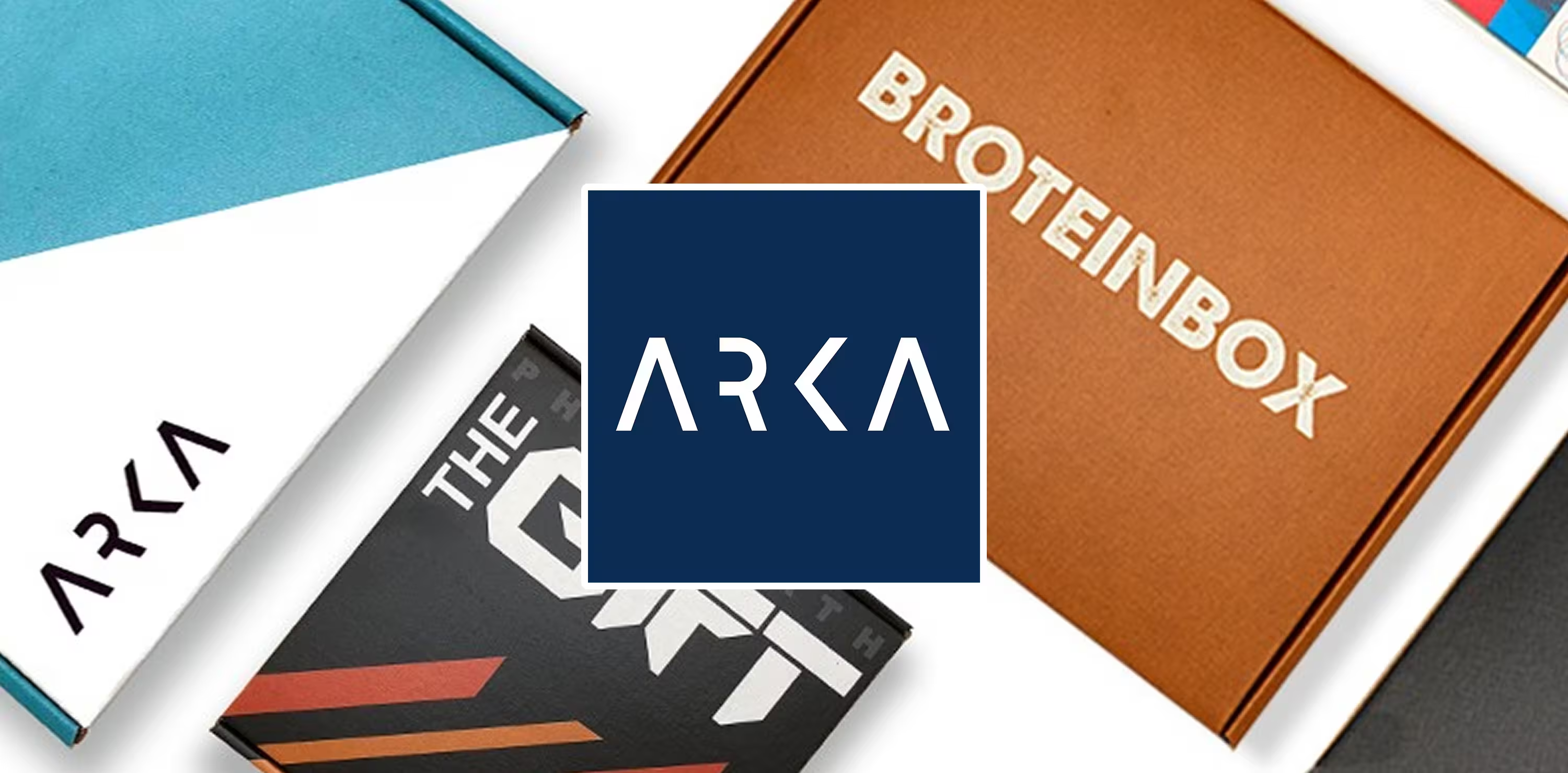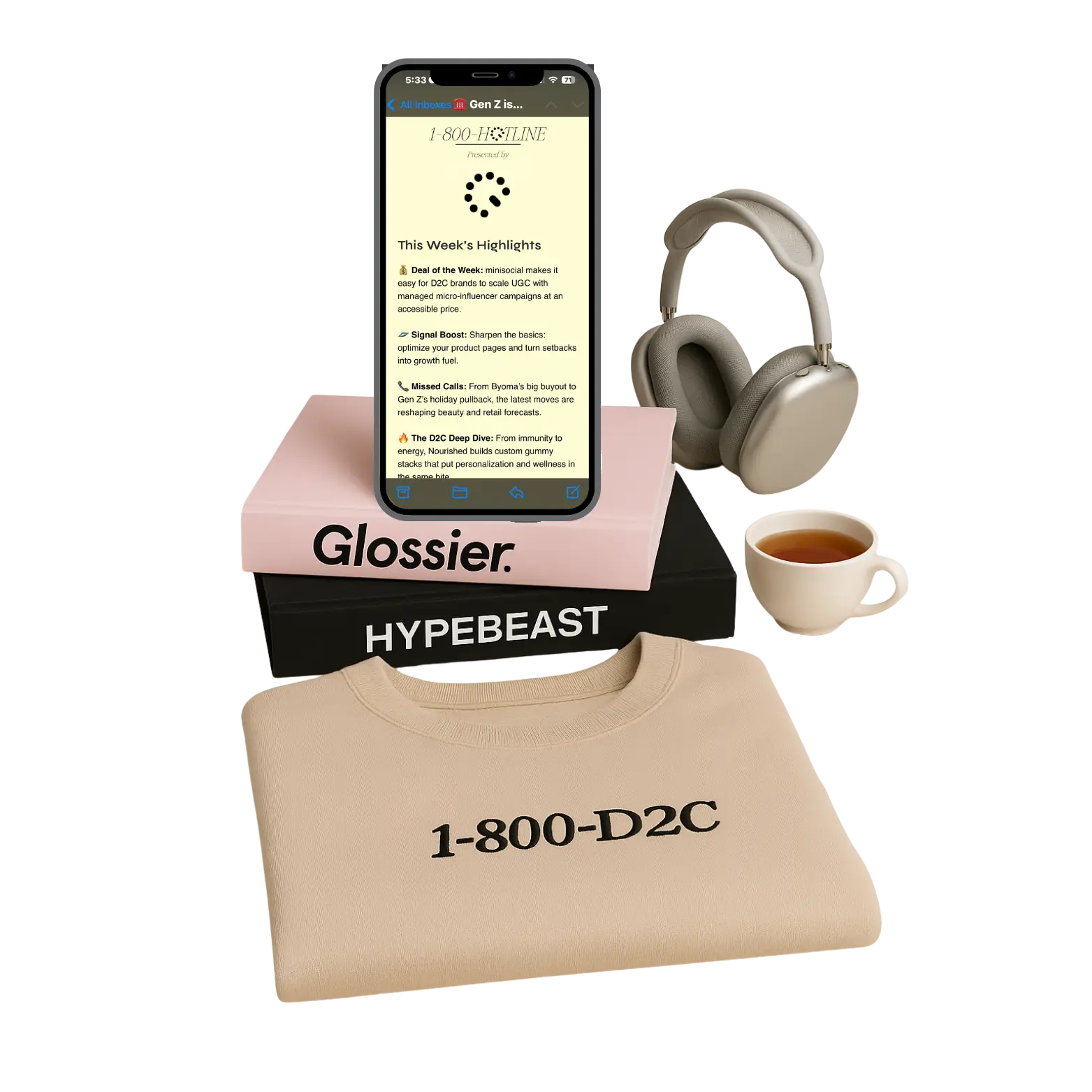
When it comes to building a memorable brand, packaging is no longer just a box, it's the first tangible touchpoint your customer has with you. But for growing e-commerce businesses, sourcing custom, sustainable packaging has historically been slow, confusing, and costly.
That’s the exact pain Phillip from Arka set out to solve. With a background deep in supply chain operations, he knew firsthand how fragmented the packaging process was. Today, Arka makes it fast, affordable, and even enjoyable for brands to design, source, and optimize packaging, while keeping sustainability front and center. From branded mailers to retail-ready boxes, they’re helping operators turn an unboxing moment into a brand-building moment.
[cta-btn title="Arka LinkedIn" link="https://www.linkedin.com/company/arkapackaging/"]
Arka.com is the easiest way for growing brands to source custom and sustainable packaging online. From branded mailers to retail-ready boxes, Arka offers low minimums, fast lead times, and design tools that simplify the entire packaging process. We serve ecommerce sellers, retailers, and fulfillment centers looking to elevate their unboxing experience and reduce waste—without breaking the bank.
I came at it from the customer’s side. I was leading supply chain for multiple businesses and constantly running into the same headache—getting packaging was slow, fragmented, and way more painful than it should’ve been. I kept thinking, there has to be an easier way.
That’s when it hit me: if I’m feeling this, so are thousands of other operators. Packaging wasn’t just inefficient—it was broken. So I decided to build the solution I wish I had.
Most brands think packaging is just a cost center or an afterthought. They focus on price per unit—but ignore the hidden costs: wasted space, higher shipping fees, returns from damaged goods, and a poor unboxing experience that hurts retention.
The truth is, bad packaging isn’t just inefficient—it quietly erodes your margins and brand perception every day.
I came up through the supply chain side—deep in the operational trenches, working with fast-growing brands that needed packaging yesterday and had no time for delays, dead ends, or guesswork.
I saw firsthand how fragmented the process was: disconnected vendors, unclear lead times, zero tech. It was clear the system wasn’t built for modern ecommerce. That experience didn’t just expose the problem—it gave me the blueprint to solve it the right way.
Customers usually fall in love with how fast and easy it is to get exactly what they need—no back-and-forth, no mystery pricing, no weeks of lead time.
Whether it’s designing custom boxes online or finding the right size in-stock packaging, the experience feels modern, intuitive, and built for how they actually work. For ops and supply chain teams, it’s like a breath of fresh air.

Most packaging providers are either traditional box brokers or rigid software tools that don’t talk to your systems or flex with your needs.
What makes Arka different is we combine supply and software—you can source off-the-shelf or custom packaging and optimize what goes in the box using our AI-powered tools. We're built for operators: low lift, fast ROI, and directly integrated with your workflows.
Where others sell boxes, we solve the entire packaging problem.
A big shift that’s flying under the radar: packaging is becoming a data problem.
Most brands still treat it like a purchasing task—pick a box, place an order. But the real cost savings and customer experience gains come from using data to right-size packaging, reduce waste, and streamline fulfillment.
With carrier fees rising and sustainability under scrutiny, brands that don’t get smarter about packaging data are quietly bleeding margin—and falling behind.
One hard lesson: moving fast doesn’t mean skipping the fundamentals.
Early on, we focused so much on growth and speed that we underestimated the importance of things like supplier accountability, unit economics, and scalable systems. That worked—until it didn’t.
We had to slow down, tighten the engine, and rebuild parts of the foundation. It was painful in the short term, but it made us a far stronger, more durable company.
If I could go back to Day 1, I’d build for scale from the start.
In the early days, we said yes to everything—every custom request, every edge case—which made things messy and hard to systematize later. If we had drawn clearer lines around our product and processes early on, we could’ve grown faster with fewer fires to put out.
Saying no is hard when you’re scrappy. But saying yes to the wrong things costs you more in the long run.
“Don’t confuse motion with progress.”
It’s easy to stay busy—calls, decks, emails, product tweaks—but none of it matters if it’s not moving the business forward. That advice forced me to focus on outcomes, not activity.
It’s now a gut-check I use daily: Is this actually pushing us toward our goals, or just filling the day?
Discover new D2C brands, new eCommerce tools and read in-depth founder reviews each week.
